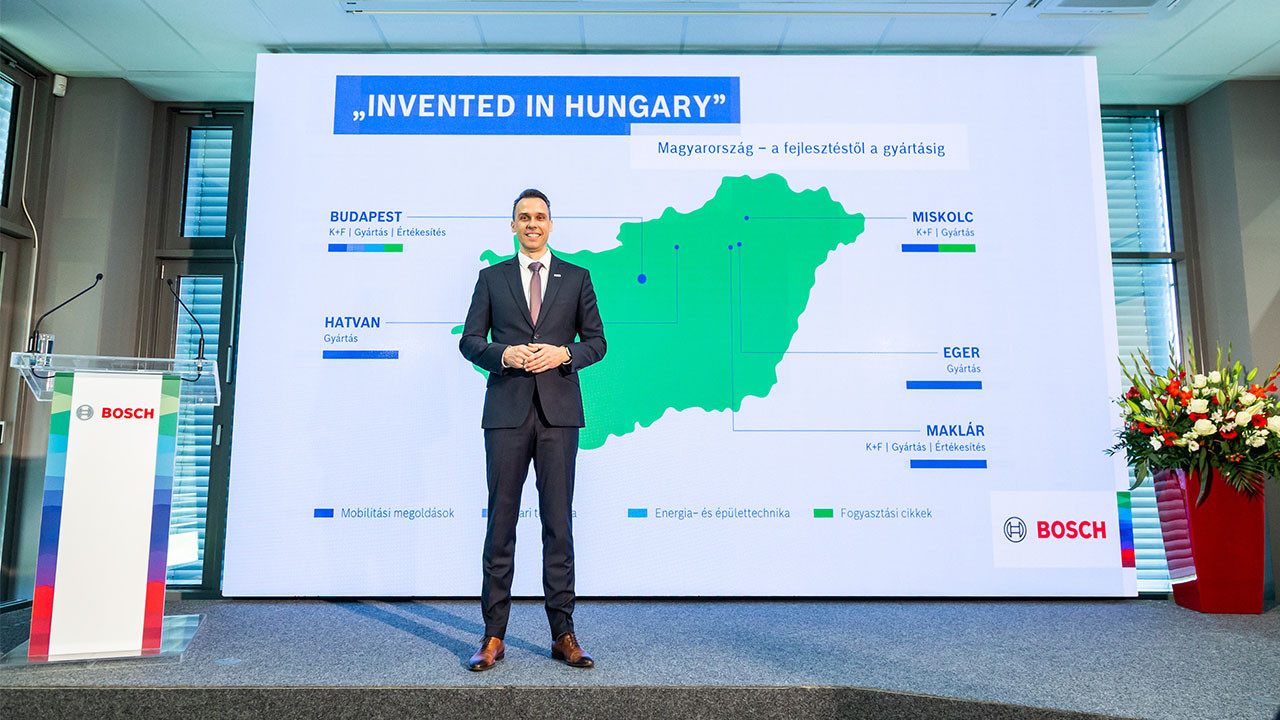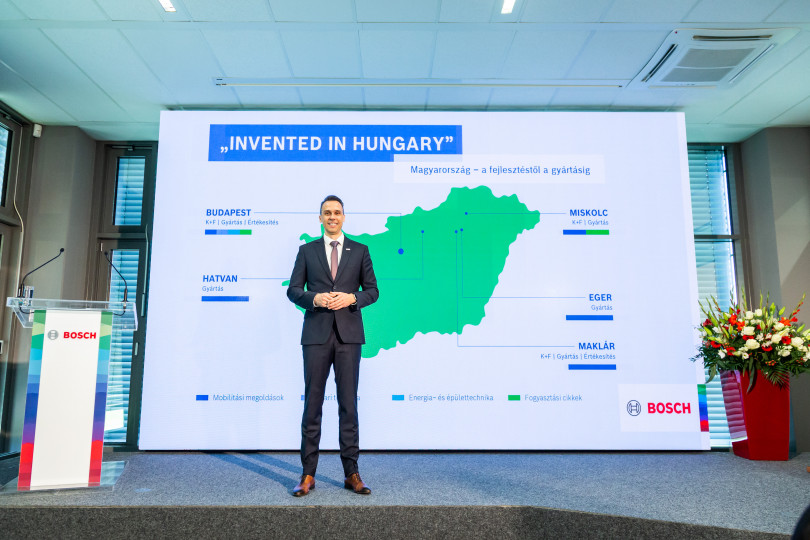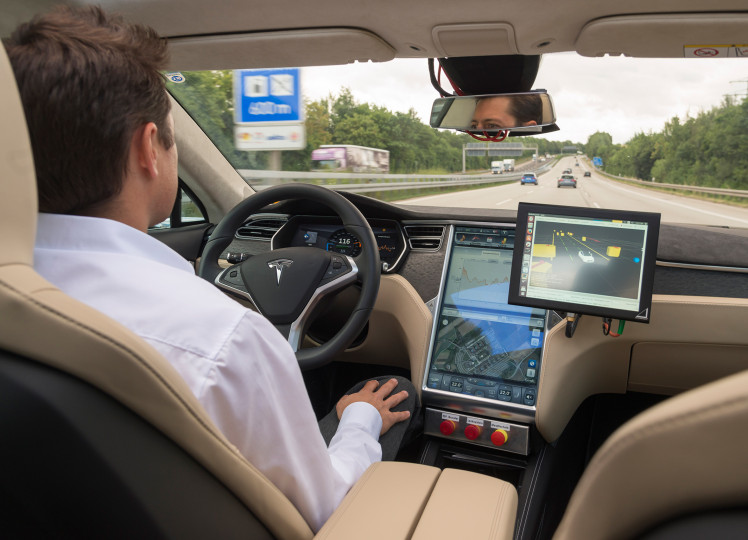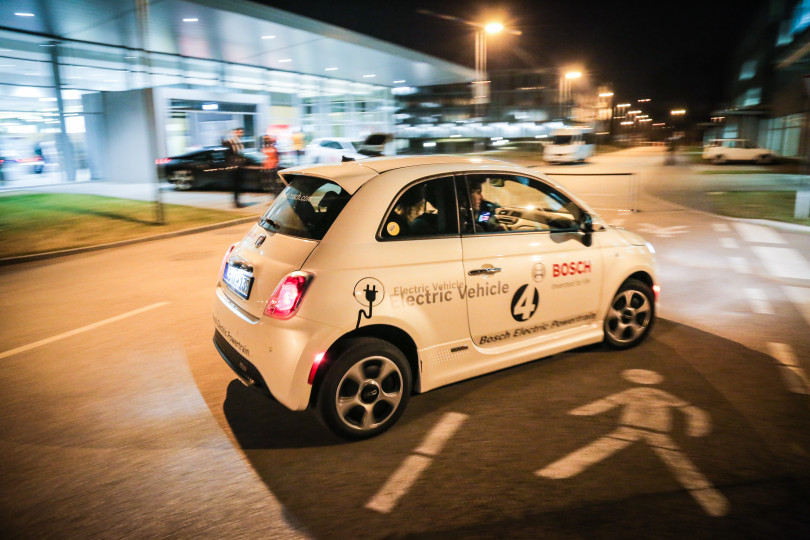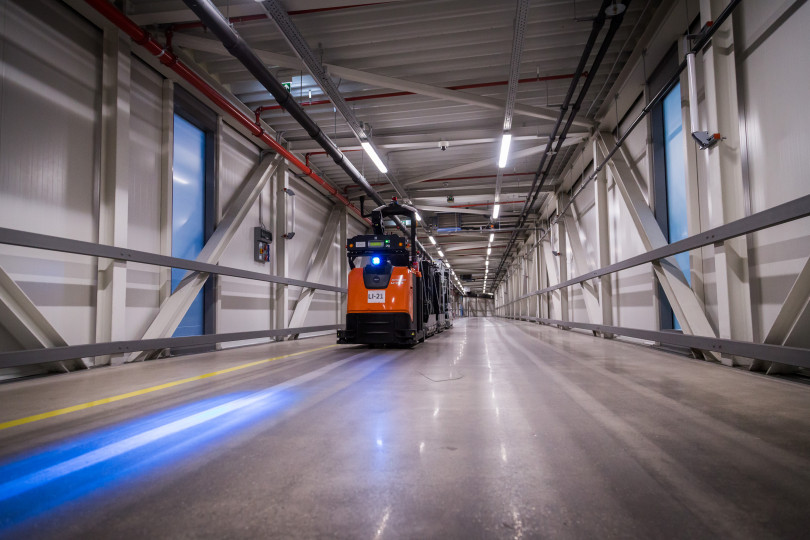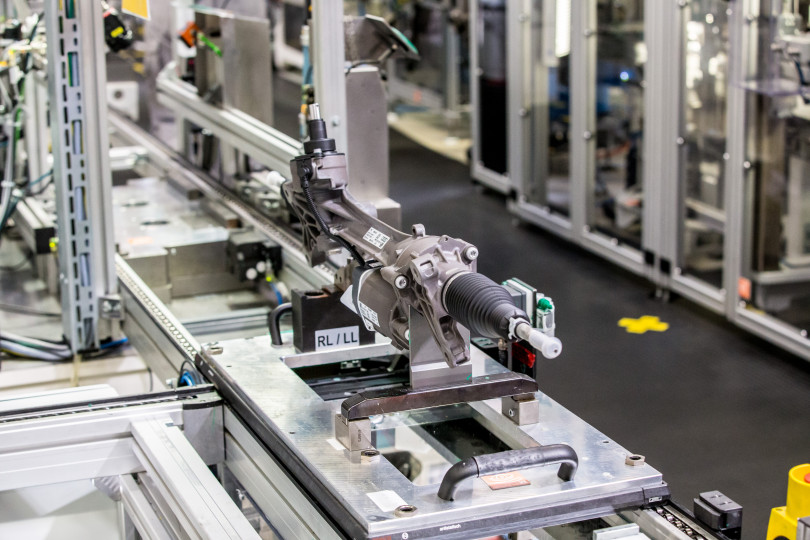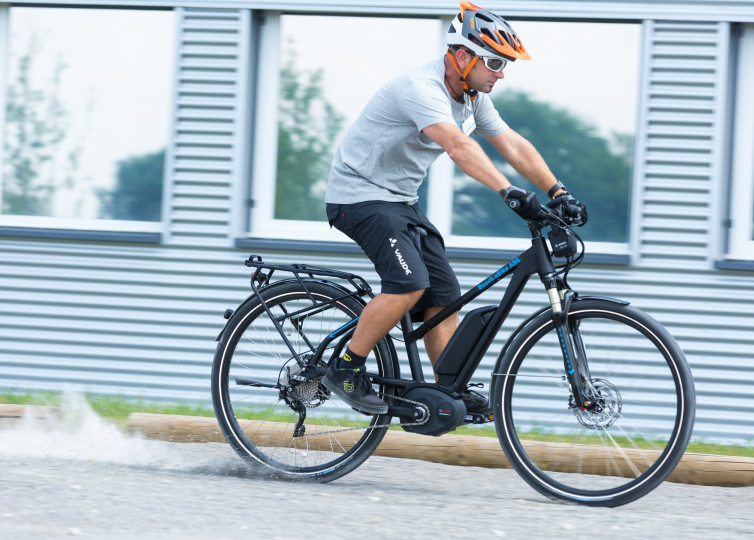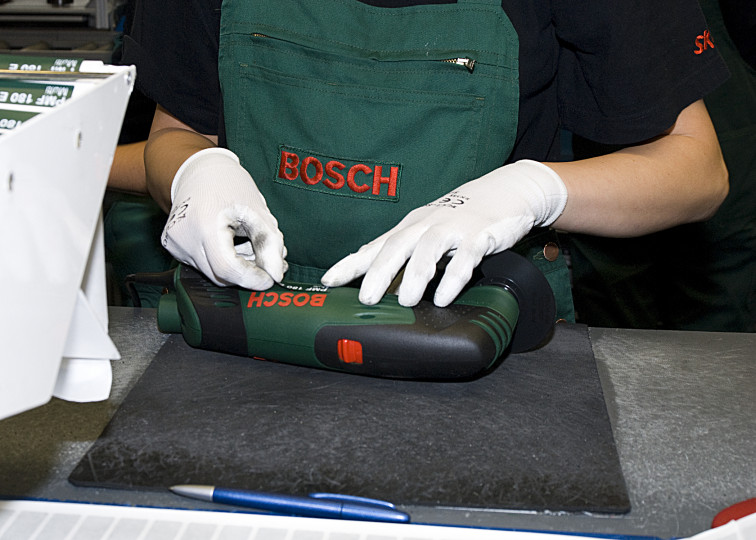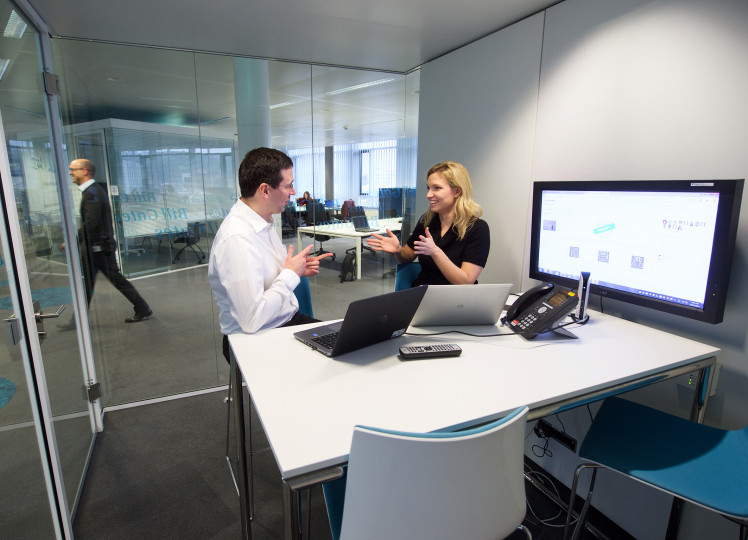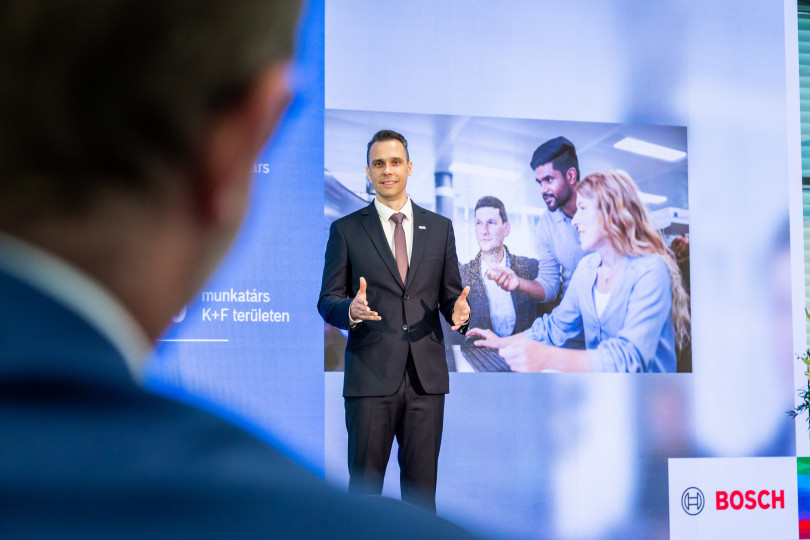Budapest – Bosch, a leading global supplier of technologies and services, closed an outstanding year 2021 in Hungary despite global challenges – the latest wave of the coronavirus epidemic, supply chain difficulties and soaring raw material prices, additionally the uncertainties with all its implications of the war in Ukraine – and achieved growth in all areas. In 2021, its total net sales in Hungary, including sales of non-consolidated companies and internal deliveries to affiliated companies, amounted to 1,711 billion forints, up 14 percent in local currency year-on-year. The Bosch Group's consolidated sales in the Hungarian market – sales revenue from sales to third parties – increased by 15 percent in local currency in 2021 to 273 billion forints. Both results also exceeded the pre-pandemic level of 2019. The number of associates also increased: on December 31, 2021, the Bosch Group employed more than 17,000 people in Hungary, 1,700 more than a year earlier.
"Just as in 2020, we had to work under extraordinary conditions in 2021. I would like to take this opportunity to thank all the associates and partners of Bosch in Hungary, because thanks to their trust, resilience and responsible behaviour in the epidemic situation, we can close the year with an outstanding result," said Dr. István Szászi, representative of the Bosch Group in Hungary and in the Adria region. In the first quarter of 2022, Bosch in Hungary slightly increased its sales despite ongoing market challenges. “We got off to a modest start in 2022. However, the considerable uncertainties we face mean it is still difficult to give a more accurate estimate for the current year as a whole.” He added that the company will continue to invest in and further expand its R&D activities in 2022.
Future-shaping investments in Hungary
Despite the challenges, the Bosch Group in Hungary has continued to invest in the future-shaping areas such as electromobility, autonomous vehicles, artificial intelligence, and Industry 4.0. In 2021, the company spent 100 billion forints (280 million euros) in total on investments in manufacturing and development.
In 2021, Robert Bosch Power Tool Kft. in Miskolc, which has been manufacturing power tools for 20 years, opened a new production hall with a 13.9 billion forints investment. It is here that power tools are made using the latest technologies, with outstanding expertise and a commitment to quality, and eBike batteries are produced on an integrated, fully robotised production line. Robert Bosch Energy and Body Systems Kft., also based in Miskolc, which produces automotive components and electric drives, has seen the largest increase in production volumes of eBike drives and engine cooling systems. In addition to production activities, the plant also carries out research and development activities. As part of this, the company has carried out a number of R&D and innovation projects, which have resulted in new manufacturing processes and components that represent a major step forward in the creation of the vehicles of the future.
Automotive Steering Columns Kft. in Eger, Hungary, also performed exceptionally well in 2021, becoming one of the largest Bosch steering column manufacturing units in Europe with the expansion and installation of new production lines over the past two years. Robert Bosch Automotive Steering Kft. in Maklár, where automotive components are manufactured, including for commercial vehicles, as well as electric and self-driving cars, started expanding its production capacity last year, introducing new technologies and establishing a service center by 2023, thanks to an investment of more than 52 billion forints. Robert Bosch Elektronika Kft., based in Hatvan continued in 2021 to be the biggest automotive electronics plant for Bosch worldwide. The site is is playing an increasingly important role in the production of electromobility-related components, with the largest increase in production of these products last year. As part of the industrial digitalisation improvements, the factory has implemented Big Data and machine learning-based technologies to optimise processes and improve cost efficiency.
Bosch develops technologies of the future in Hungary
Continuing its active R&D activities, Bosch has invested almost 93 billion forints in research and development in Hungary in 2021. Today, nearly 3,200 Bosch associates are working on the development of technologies that will shape the future. The focus is on areas – electromobility, hydrogen, and artificial intelligence-based developments – that not only create new market opportunities, but also contribute to achieving climate protection goals.
Within the global group, Hungary, and in particular the Engineering Center Budapest, is playing an increasingly important role in developments related to autonomous driving and electromobility. In the latter area, almost all components of the electric powertrain, from mild hybrids to fully electric cars, are being developed. In recent years, many technologies related to artificial intelligence and self-driving vehicles have been developed here. Most of them help autonomous systems to analyse the traffic environment more accurately and predict the movements of other vehicles.
The company's new R&D center is scheduled to open in Budapest in September 2022, which will contribute to the creation of safer and more sustainable mobility by, among other things, harnessing the knowledge and ideas of Hungarian engineers. The campus, which will focus on electromobility and the development of autonomous vehicles, will also house offices, workshops, laboratories and a test track. In addition, the company will create an engineering development and testing site at the ZalaZone test track in Zalaegerszeg, which will contribute to the development of automotive, electromobility, self-driving cars and artificial intelligence-based technologies.
Strengthening university collaboration for a comprehensive R&D network
The company group will build on the active involvement of industry and academia in Hungary. The first Artificial Intelligence industrial department in the country, the ELTE – Bosch Artificial Intelligence Department (at Eötvös Lóránd University), has been established, and preparations are underway to establish a joint R&D center with Budapest Technical University (BME). A number of joint R&D and education-related tasks are carried out in the workshop at Óbuda University. In the Bosch R&D ecosystem, universities will have first-hand information on industrial trends to support technology development even more effectively, Bosch will be able to strengthen its R&D through joint projects, and students will be able to get involved in industrial developments while still at university.
Bosch Group: outlook for 2022 and strategic course
In 2021, Bosch achieved significant growth in sales and result despite a difficult environment. In the first quarter of 2022, the sales revenue of the supplier of technology and services rose 5.2 percent. For the year as a whole, Bosch expects sales to grow more than 6 percent, and to achieve an EBIT margin in the range of 3 to 4 percent – and this despite the likelihood of considerable burdens, especially due to rising costs for energy, raw materials, and logistics. “The successful outcome of the 2021 business year bolsters our confidence as we tackle the challenging environment of the current year,” said Dr. Stefan Hartung, chairman of the board of management of Robert Bosch GmbH. One of the considerable uncertainties is the war in Ukraine and all its implications. In his view, the current situation highlights the pressure on policymakers and society to become less dependent on fossil fuels and to vigorously pursue the development of new sources of energy. For this reason, he said, the Bosch Group is systematically continuing its efforts to mitigate global warming, despite the challenging economic environment. In addition, Hartung announced Bosch will be investing some three billion euros over three years in climate-neutral technology such as electrification and hydrogen.
He believes electrification is the fastest route to climate neutrality, provided it is based on green electricity. That is why Bosch is driving sustainable mobility forward: in 2021, the company’s orders relating to electromobility exceeded ten billion euros for the first time. But Hartung also stressed that hydrogen is needed as well. “Industrial policy should focus on making all sectors of the economy hydrogen-ready,” he said. In the interest of effective climate action, Bosch is also entering the components business for hydrogen electrolysis. The company plans to invest nearly 500 million euros in this new area of business by the end of the decade, half of it by the time of market launch, which is planned for 2025. At the same time, the Bosch chairman announced that, over the next three years, the company will be investing another ten billion euros in digitally transforming its business. “Digitalization also has a special role to play in sustainability – and our solutions start from this premise,” Hartung said. This year alone, moreover, Bosch plans to take on 10,000 new software engineers worldwide.
Mónika Hack
+36 70 510 5516
Bosch has been present in Hungary since 1898 with its products. After its re-establishment as a regional trading company in 1991, Bosch has grown into one of Hungary’s largest foreign industrial employers with currently eight subsidiaries. In fiscal 2021 it had total net sales of 1,711 billion forints and consolidated sales to third parties on the Hungarian market of 273 billion forints. The Bosch Group in Hungary employs more than 17,000 associates (as of December 31, 2021). In addition to its manufacturing, commercial and development business, Bosch has a network of sales and service operations that covers the entire country.
The Bosch Group is a leading global supplier of technology and services. It employs roughly 402,600 associates worldwide (as of December 31, 2021) and generated sales of 78.7 billion euros in 2021. Its operations are divided into four business sectors: Mobility Solutions, Industrial Technology, Consumer Goods, and Energy and Building Technology. As a leading IoT provider, Bosch offers innovative solutions for smart homes, Industry 4.0, and connected mobility. Bosch is pursuing a vision of mobility that is sustainable, safe, and exciting. It uses its expertise in sensor technology, software, and services, as well as its own IoT cloud, to offer its customers connected, cross-domain solutions from a single source. The Bosch Group’s strategic objective is to facilitate connected living with products and solutions that either contain artificial intelligence (AI) or have been developed or manufactured with its help. Bosch improves quality of life worldwide with products and services that are innovative and spark enthusiasm. In short, Bosch creates technology that is “Invented for life.” The Bosch Group comprises Robert Bosch GmbH and its roughly 440 subsidiary and regional companies in some 60 countries. Including sales and service partners, Bosch’s global manufacturing, engineering, and sales network covers nearly every country in the world. With its more than 400 locations worldwide, the Bosch Group has been carbon neutral since the first quarter of 2020. The basis for the company’s future growth is its innovative strength. At 128 locations across the globe, Bosch employs some 76,100 associates in research and development, of which more than 38,000 are software engineers.
Additional information is available online at www.bosch.hu, iot.boschblog.hu, www.bosch.com, www.iot.bosch.com, www.bosch-press.com, www.twitter.com/BoschPresse

